MercoPress. South Atlantic News Agency
Tag: China
-
Tuesday, March 6th 2012 - 04:51 UTC
China increases defense budget to 100bn dollars; India says it is closer to 150bn
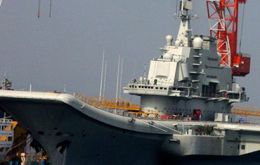
China has announced it will increase defense spending by 11.2% in 2012, for the first time taking its annual military expenditure beyond 100 billion dollars as it puts in place plans to modernize its Army against the backdrop of an uncertain regional environment.
-
Tuesday, March 6th 2012 - 01:06 UTC
China targets 7.5% economic growth as it prepares for change of leadership
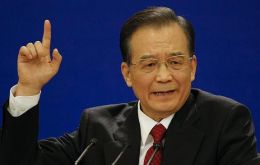
China expects economic growth of 7.5% this year as it looks for more sustainable expansion, prepares for a change in leadership and rides out a global slowdown. Premier Wen Jiabao unveiled the target at the start of the annual National People's Congress.
-
Monday, February 27th 2012 - 17:39 UTC
China at turning point: current model is unsustainable says the World Bank

The World Bank has warned China’s government that it must relax its grip on industry and move towards a free-market economy.
-
Tuesday, February 14th 2012 - 20:51 UTC
New Year or Euro crisis: China’s January exports fall, imports plummet 15.3%
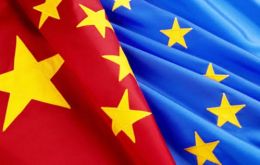
China's exports fell in January the first decline in more than two years, raising fresh concerns about the impact of a global slowdown on its economy. Exports dipped 0.5% from a year earlier hurt by sluggish demand and factories being shut during the Lunar New Year.
-
Monday, February 13th 2012 - 20:06 UTC
“We may be poor but not stupid”, China is not interested in EU government bonds
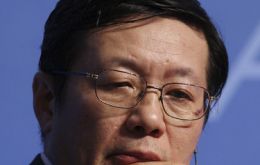
The head of China’s 410 billion dollars sovereign wealth fund CIC brushed aside a call by German Chancellor Angela Merkel to buy European government debt, saying such investments were “difficult” for long-term investors.
-
Tuesday, February 7th 2012 - 06:09 UTC
China growth could drop by half in 2012 because of the Euro crisis warns IMF

Economic growth in China could drop by half this year in the event of a sharp recession in Europe, the IMF predicted on Monday in a report that underscored the importance of global trade to the world's second largest economy.
-
Monday, February 6th 2012 - 06:51 UTC
Chavez supports Russia/China veto on UN Syrian resolution as “very positive”

While Western and Arab countries responded with outrage after Russia and China vetoed a UN Security Council resolution that would have urged Syrian President Bashar al-Assad to give up power, Venezuelan president Hugo Chavez considered the veto as “very positive”.
-
Sunday, February 5th 2012 - 07:52 UTC
Jackie Chan to promote Brazilian manufactured executive aircraft in China
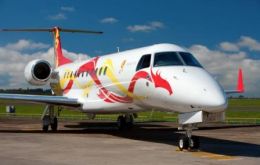
Brazil’s aircraft manufacturer Embraer has delivered a Legacy 650 to celebrity Jackie Chan for the Chinese market. The aircraft is painted with a dragon logo.
-
Friday, February 3rd 2012 - 19:00 UTC
China has neither the ability or the intention to ‘buy Europe’ says Wen Jibao

China's Premier Wen Jiabao said on Friday the Asian giant had neither the ability nor the intention to “buy Europe”, amid concerns over growing Chinese investment in debt-stricken Euro zone economies.
-
Tuesday, January 31st 2012 - 23:51 UTC
China bars Brazil’s bulk carriers from its ports; clash over iron ore shipping rates
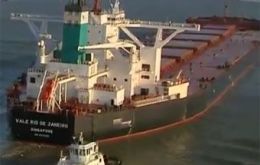
China banned a giant new class of ship from its ports on Tuesday, a move that checks efforts by mining giant Vale SA to cut the cost of shipping iron ore to its largest market and risks raising trade tensions with Brazil.
